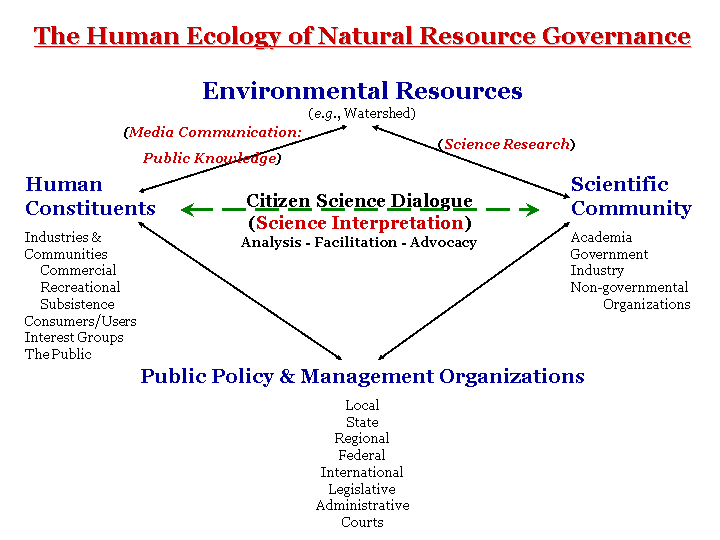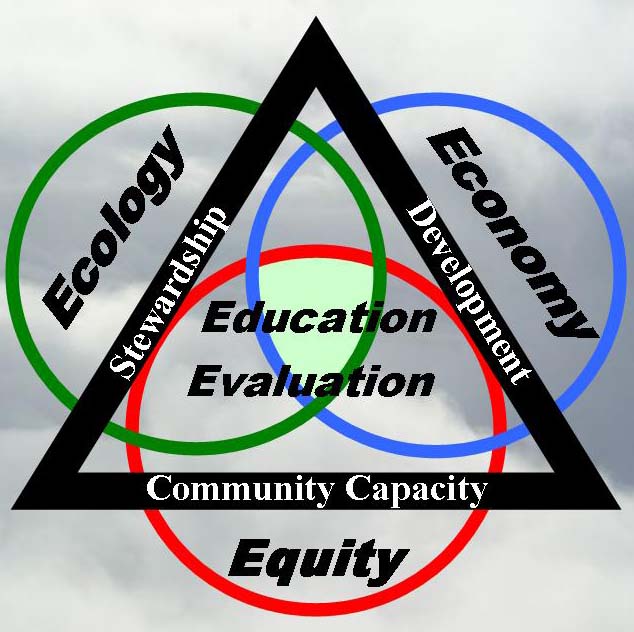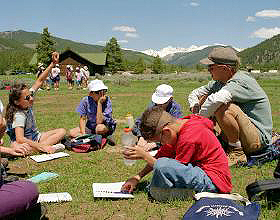| The
increasing importance of science in today's world calls
for far greater interaction among all stakeholders.
Science is about objectivity, reliability, and validity
(non-normative): what will, or might, happen. Societal
decision-making however, is human value-based and supported
by community advocacy (normative): what should happen.
This realization causes Five E's Unlimited to
promote a new direction in community-based decision-making
and
governance
that
can most effectively benefit from the use of science
by:
- identifying
the communities/constituencies;
- evaluating
their attitudes, perceptions and values;
- engaging
them in a facilitation/consensus-building process;
- evaluating
common goals and commonly-developed alternatives;
and
- promoting
effective advocacy.

Citizens
and other stakeholders in communities are increasingly
demanding to be well informed about the activities
of government as well as economic development interests,
to have emphasis placed on socio-economic and environmental
sustainability of their communities, and to have significant
input into the decision-making processes of government
and industry that directly affects this sustainability.
From this growing need of civil society to have the
capacity and be empowered to take charge of their own
destiny, it becomes apparent that a new methodology
is required that will adequately involve all interested
stakeholders in dialogue and decision-making pertinent
to their futures. An effective means to accomplish
this goal of full public involvement, awareness, and
integrated discourse is through the application of “citizen
science” as is outlined in the above diagram.
When
one shifts from a view of science as exclusively an
academic activity and begins to see science as a part
of a larger social dialogue and deliberation — if
one begins, that is, to see science as mission-oriented
instead of exclusively curiosity-driven — relevance
to real social values becomes one important determinant
of what counts as good science. Adaptive managers believe
in sharing scientific and technology information as
a part of the public process, rather than as an input
into the process from the “outside,” as
demonstrated by the adjacent diagram that shows experts
(expert-ways-of-knowing) sharing information with civil
society to develop “public ways of knowing.” Successful
use of science in a public, democratic policy formation
process requires a free flow of information in multiple
directions. What the idea of sustainability is missing
up to now, is a multidisciplinary, integrative language
capable of supporting multidisciplinary public discourse
and deliberations related to community-based
research.
Ecologists,
sociologists, and economists will have much more impact
on policy if they use terms that transparently link
technical information and theory to widely favored
civil society values and goals. Failure to employ language
that helps stakeholders from civil society make connections
between science and technology trends and social values
has a great cost: the public and the policymakers know
whether trends in data are good or bad only if they
are willing to learn a body of scientific information
and its application to sectors of public interest.
As
Alan Leshner, the CEO of AAAS recently stated, "The
Nexus Where Science Meets Society" (Science, Vol.
307; February 11, 2005), reminds us of many events
of the past few years that suggest the relationship
between science and society is undergoing significant
stress. Science and its products are intersecting more
frequently with certain human beliefs and values. Some
members of the public are finding certain lines of
scientific research and their outcomes disquieting,
while others challenge the kind of science taught in
schools. This disaffection and shift in attitudes predict
a more difficult and intrusive relationship between
science and society in times to come if we don’t
find another way of “doing business.” Five
E's promotes
the role of citizen science in
all its work.
Experts,
mostly unwittingly, have created a conceptual gulf
between the information they gather and the social
values people cherish, making it very difficult for
participants in policy discussions to see the relationship
between ecological and socio-economic science and public
values. Policy discourse currently suffers because,
whereas economic data is easily associated with the
well-being of citizens in our democracy, ecological
data has no such resonance. And yet, in the overall
dialogue about community values the two are very much
interrelated. Five E's approach to management therefore
includes a means of identifying, justifying, and/or
legitimating science by reference to some social value.
This is exactly where the application of citizen
science can make a real difference.
|


